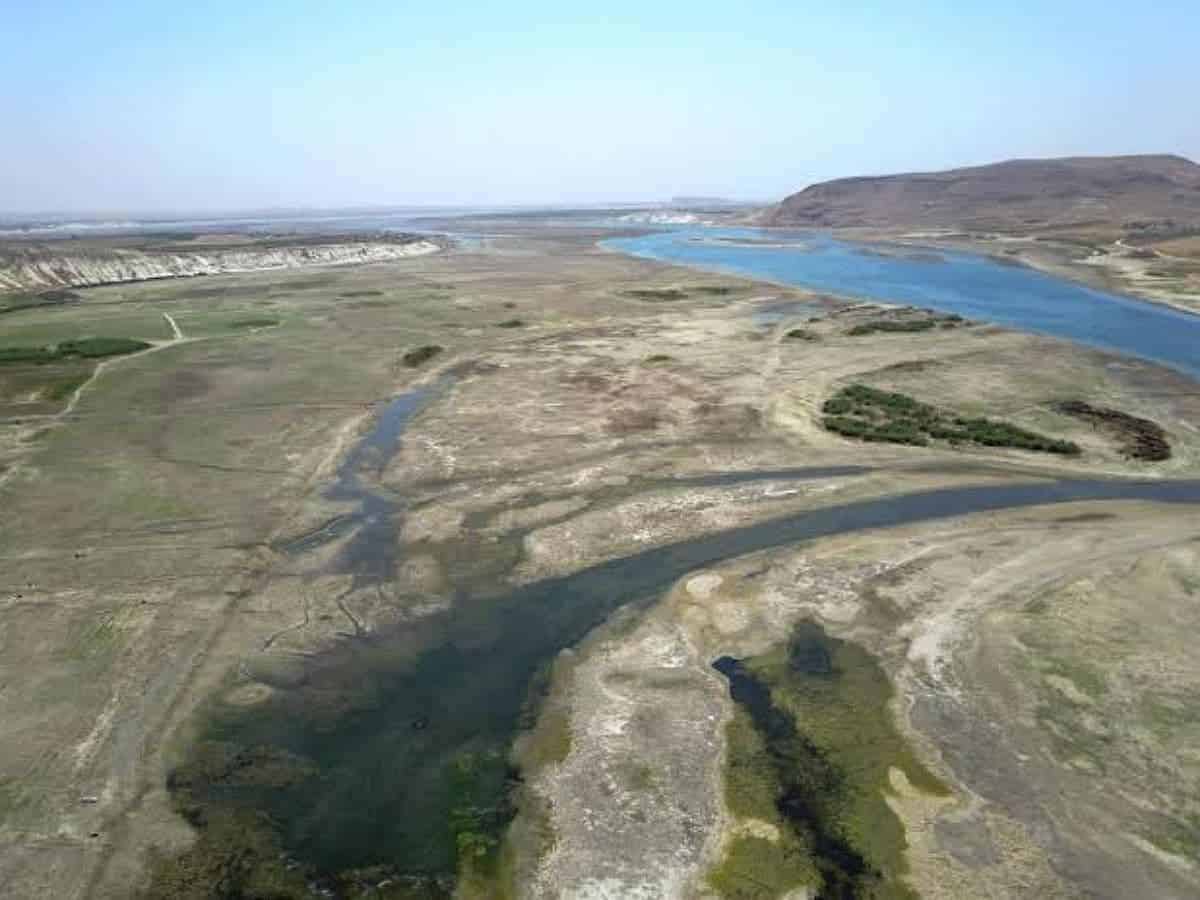Damascus: The drying up of Euphrates, Syria’s longest river is raising concerns as the demise of the water body could lead to a humanitarian disaster in the country. Millions of people in Syria are losing access to water, food and electricity.
The aid groups and engineers have expressed their concern at the possibility of a humanitarian disaster in northeastern Syria.
Rising temperatures, lower rainfall and drought across the region are depriving people of drinking water and agricultural water. This also disrupts electricity as dams run out, which in turn affects the operation of basic infrastructure, including health facilities. The rise in temperatures caused by climate change increase the risks and severity of droughts.
More than five million people in Syria directly depend on the river.
Khaled al-Khamees , a 50-year-old farmer from Rumayleh in Alepp Province, was financially affected when a creeping drought hit his land this year.
“We’re thinking of leaving because there’s no water left to drink or irrigate the trees,” Khamees told media.
Humanitarian groups in Syria also indicated that two out of three drinking water stations along the river has been pumping less water or has stopped working.
Even Iraq faces the same situation; the loss of access to water from the river and drought threatens at least seven million people.
Lowest rainfall for the past two years
The drought in both countries has been the worst in recent years.
Syria has received 50 to 70 per cent of normal rainfall over the past two years, threatening 5 million people. People in Syria and Iraq, are directly dependent on the Euphrates.
The river is generated in southeastern Turkey and is the main source of clean drinking water as well as hydroelectric power that produces electricity for about three million people in Syria.

